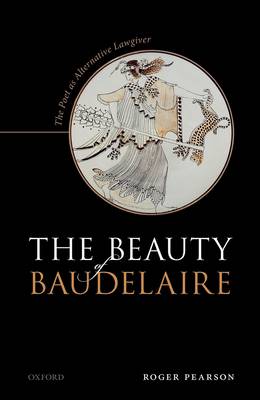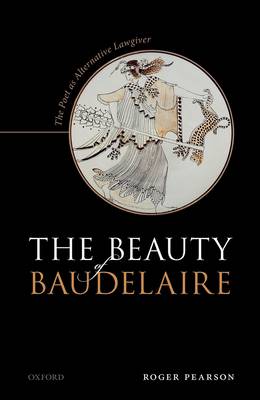
- Retrait gratuit dans votre magasin Club
- 7.000.000 titres dans notre catalogue
- Payer en toute sécurité
- Toujours un magasin près de chez vous
- Retrait gratuit dans votre magasin Club
- 7.000.0000 titres dans notre catalogue
- Payer en toute sécurité
- Toujours un magasin près de chez vous
257,95 €
+ 515 points
Description
This book offers the first comprehensive close reading in any language of the complete works of Charles Baudelaire (1821-1867). Taking full account of his critical writings on literature and the fine arts, it provides fresh readings of Les Fleurs du Mal and Le Spleen de Paris. It situates these works within the context of nineteenth-century French literature and culture and reassesses Baudelaire's reputation as the 'father' of modern poetry. Whereas he is traditionally considered to have rejected the public role of the writer as moralist, educator, and political leader and to have dedicated himself instead to the exclusive pursuit of beauty in art, this book contends not only that he rejected Art for Art's sake but that he saw in 'beauty'--defined not as an inherent quality but as an effect of harmony and rich conjecture--an alternative ethos with which to resist the tyrannies of ideology and conformism. Contrarian in his thinking and provocatively innovative in his poetic practice, Baudelaire fell foul of the law when six poems in Les Fleurs du Mal (1857) were banned for obscenity. In the second edition (1861), substantially recast and enlarged, the poet as alternative lawgiver made plainer still his resistance to the orthodoxies of his day. In a series of major critical articles he proclaimed the 'government of the imagination', while from 1855 until his death he developed an alternative literary form, the prose poem--a thing of beauty and an invitation to imagine the world afresh, to make our own rules.
Spécifications
Parties prenantes
- Auteur(s) :
- Editeur:
Contenu
- Nombre de pages :
- 672
- Langue:
- Anglais
Caractéristiques
- EAN:
- 9780192843319
- Date de parution :
- 16-11-21
- Format:
- Livre relié
- Format numérique:
- Genaaid
- Dimensions :
- 165 mm x 239 mm
- Poids :
- 1088 g

Les avis
Nous publions uniquement les avis qui respectent les conditions requises. Consultez nos conditions pour les avis.






